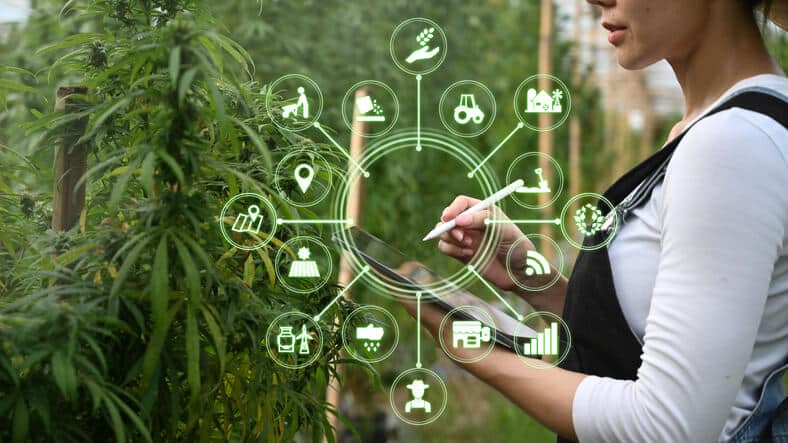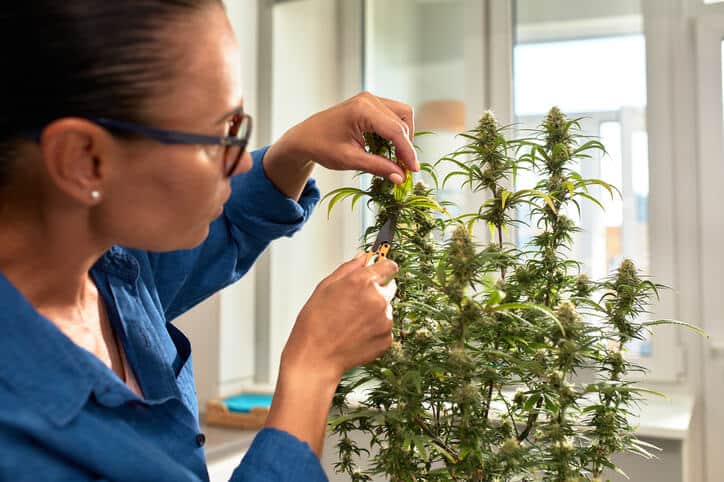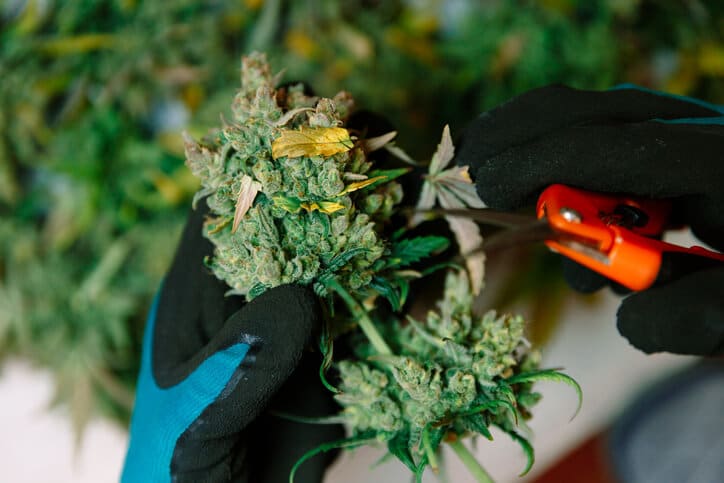At its core, success in the cannabis sector starts with one fundamental process: cannabis cultivation. Cannabis cultivation is a complex yet rewarding field requiring scientific knowledge, attention to detail, and hands-on expertise. Whether you want to start a career in the industry or deepen your understanding of cannabis production, learning the right techniques is essential for success.
At AAPS, our cannabis cultivation certificate program equips students with a comprehensive understanding of the plant’s life cycle, genetics, and advanced cultivation techniques. Here’s an overview of the essential techniques for studying cannabis cultivation with us.
Life Cycle of the Cannabis Plant
Understanding the life cycle of the cannabis plant is fundamental to cultivation. The plant undergoes several stages: germination, seedling, vegetative growth, and flowering. Each phase has specific environmental and nutritional needs that must be met for the plant to thrive.
For example, the vegetative stage requires more nitrogen to promote leafy growth, while the flowering stage demands higher phosphorus and potassium levels to produce dense buds. Navigating these stages ensures you can grow healthy plants and optimize yields.

Understanding the life cycle of the plant is fundamental to cannabis cultivation.
Genetics and Phenotyping
Every cannabis plant starts with its genetic makeup, influencing composition, growth patterns, potency, flavour, and resistance to pests and diseases. Phenotyping, or observing how these genetic traits express themselves in different environments, is a crucial skill for cultivators.
In our cannabis cultivation certificate program, you’ll learn the science behind cannabis genetics, the breeding process, how cultivators select and maintain the best genetic cultivars for their cultivation goals. This knowledge allows you to grow plants with consistent quality and desirable characteristics.
Propagation and Cloning
Cannabis breeding involves cross-pollinating plants to create new strains with specific traits, such as higher potency or increased resistance to disease. Propagation techniques like cloning allow cultivators to replicate these desirable traits consistently.
At AAPS, we cover propagation and cloning techniques to help you create and maintain high-quality cannabis crops. These skills are vital for staying competitive in a fast-evolving industry.

Our cannabis cultivation program teaches how to maximize plant health and yield.
Vegetative Growth and Flowering
The vegetative and flowering stages are critical periods in the cannabis life cycle. During vegetative growth, the plant focuses on developing strong roots and foliage. This stage lays the groundwork for a productive flowering phase, where buds develop and mature.
Proper lighting, temperature, humidity, and nutrient management are essential during these stages. Our program teaches monitoring and adjusting these factors to maximize plant health and yield.
Harvesting and Processing
Harvesting cannabis at the right time is just as important as growing it. Knowing when to harvest requires understanding the plant’s trichomes and their colour changes, which indicate peak potency.
After harvesting, processing steps like drying and curing are crucial for preserving the plant’s quality, flavour, and potency. AAPS provides in-depth training on these post-harvest techniques to ensure your final product meets industry standards.

Timing the harvest correctly is key to successful cannabis cultivation.
Quality Control
Quality control is non-negotiable in a regulated industry. From monitoring for contaminants to ensuring consistency, cultivators must adhere to strict quality assurance practices. Our cannabis cultivation certificate program includes training in quality control techniques to ensure your crops meet the highest standards.
Develop Your Cannabis Cultivation Skills at AAPS
To produce consistent, high-quality plants, growers must understand the complexities of the plant’s life cycle, the nuances of environmental control, and the science behind optimizing yield and potency.
The cannabis industry is filled with opportunity, but success starts with knowledge and practical experience. Our cannabis cultivation certificate program provides an in-depth curriculum that covers everything from plant biology to post-harvest processes. Take the next step toward a rewarding career.
Do you want to explore programs at our pharmaceutical institute?
Contact AAPS for more information.




